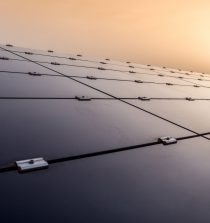DUKE Energy today provided an update on its strategy to meet customers’ need for affordable, reliable and increasingly clean energy. The company’s planned investment of $145 billion over the next 10 years for critical energy infrastructure is essential to meeting these customer needs and achieving net-zero carbon emissions by 2050 while also creating substantial economic benefits for the communities it serves.
“Our customers’ expectations are clear – they want affordability and reliability to remain a central focus as we work to achieve net-zero carbon emissions by 2050,” said Lynn Good, Duke Energy chair, president and CEO. “We look forward to continuing our collaboration with customers, regulators, community leaders and other stakeholders to meet these expectations.
These critical energy infrastructure investments will also provide substantial economic benefits, including job creation and tax revenue for essential governmental services in our regions.”
Investing in critical energy infrastructure
To meet customer needs, the company is updating its capital investment plan for its seven regulated utilities to $145 billion over the next decade, a $10 billion increase over its previous 10-year plan. Eighty-five percent of the planned investment will fund the company’s generation fleet transition and grid modernization. This includes approximately $75 billion to modernize and harden its transmission and distribution infrastructure; $40 billion for zero-carbon generation, such as solar, wind and battery storage resources, and extending the life of its nuclear fleet; and approximately $5 billion in hydrogen-enabled natural gas technologies. The ultimate timing of investments will be subject to regulatory approvals.
Reliability and resiliency
Duke Energy’s vital grid investments are the foundation of meeting customer expectations. Modernizing and hardening the transmission and distribution infrastructure will help empower customers, maintain service reliability, avoid service interruptions, and better prepare and protect against severe weather and potential cyber events. These investments will also pave the way as the company reaches 30,000 megawatts of renewable energy by 2035 and support the continued growth of technologies such as battery storage and electric vehicles.
The company will also continue installing advanced smart technology that monitors and detects potential problems and schedules maintenance before an outage even occurs, as well as self-healing technology that reduces the frequency and duration of outages. This intelligent grid of the future will also empower customers by offering tools that give them more control over their energy usage, letting them save energy and money.
Customer affordability
The company is taking significant steps around customer affordability, including making investments to lower future fuel volatility and cost. Some of these initiatives – all of which directly reduce customers’ bills – include leveraging clean energy tax credits, increasing rate stability by transitioning to renewables that have no fuel requirements, implementing mechanisms to lower financing costs of storm restoration, and undertaking significant ongoing cost management activities.
Additionally, as rising commodity prices impact customers, the company has worked with stakeholders to moderate bill impacts, including extending recovery times for increased fuel costs. It is also providing flexibility by extending payment arrangements and increasing efforts to make customers aware of further financial assistance.
Last year, Duke Energy set up a dedicated agency team of customer advocates to partner with nonprofit and government organizations, which has helped customers access more than $200 million in financial support over the last two years.

Economic impact
Successful implementation of the company’s strategy will provide economic benefits to our customers and communities over the next 10 years, stemming from job creation, infrastructure growth and economic development, according to an economic impact study conducted by EY.
The study found that the company’s 10-year capital investment plan will support more than 20,000 additional direct, indirect and induced jobs annually during that period. This includes workers who directly build clean energy infrastructure and indirect jobs in other sectors of the economy. Additionally, the study found that the company’s activities will support $250 billion in economic output throughout the U.S. economy due to jobs, income paid to workers and payments made to suppliers.
In addition, it will generate over $5 billion in additional property tax revenue over the next 10 years to support schools, first responders, roads, and other infrastructure and essential services in our local communities.
Path to net-zero
The company also published its latest climate report today to provide transparency on its path to net-zero.
The company reaffirmed expectations to exceed 50% carbon reduction by 2030 and established interim carbon emission reduction targets of 80% for Scope 1 emissions by 2040 and 50% for Scope 2 and 3 upstream and downstream emissions by 2035. Duke Energy is one of the first utilities to address the totality of its impact – 95% of the company’s greenhouse gas emissions are now tied to a measurable net-zero goal.
As the company oversees the largest planned coal closure in the industry, it is focused on impacts to customers, communities and employees. Today, the company published principles and a framework to guide its efforts moving forward, which includes working with stakeholders to identify opportunities and needs that arise as a direct result of the transition, including economic opportunities that will promote employment and sustainable community benefits.









Your point of view caught my eye and was very interesting. Thanks. I have a question for you.
I don’t think the title of your article matches the content lol. Just kidding, mainly because I had some doubts after reading the article.
I don’t think the title of your article matches the content lol. Just kidding, mainly because I had some doubts after reading the article.